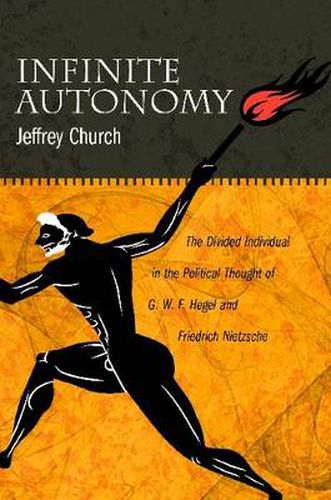Readings Newsletter
Become a Readings Member to make your shopping experience even easier.
Sign in or sign up for free!
You’re not far away from qualifying for FREE standard shipping within Australia
You’ve qualified for FREE standard shipping within Australia
The cart is loading…






G. W. F. Hegel and Friedrich Nietzsche are often considered the philosophical antipodes of the nineteenth century. In Infinite Autonomy, Jeffrey Church draws on the thinking of both Hegel and Nietzsche to assess the modern Western defense of individuality-to consider whether we were right to reject the ancient model of community above the individual. The theoretical and practical implications of this project are important, because the proper defense of the individual allows for the survival of modern liberal institutions in the face of non-Western critics who value communal goals at the expense of individual rights. By drawing from Hegelian and Nietzschean ideas of autonomy, Church finds a third way for the individual-what he calls the historical individual, which goes beyond the disagreements of the ancients and the moderns while nonetheless incorporating their distinctive contributions.
$9.00 standard shipping within Australia
FREE standard shipping within Australia for orders over $100.00
Express & International shipping calculated at checkout
G. W. F. Hegel and Friedrich Nietzsche are often considered the philosophical antipodes of the nineteenth century. In Infinite Autonomy, Jeffrey Church draws on the thinking of both Hegel and Nietzsche to assess the modern Western defense of individuality-to consider whether we were right to reject the ancient model of community above the individual. The theoretical and practical implications of this project are important, because the proper defense of the individual allows for the survival of modern liberal institutions in the face of non-Western critics who value communal goals at the expense of individual rights. By drawing from Hegelian and Nietzschean ideas of autonomy, Church finds a third way for the individual-what he calls the historical individual, which goes beyond the disagreements of the ancients and the moderns while nonetheless incorporating their distinctive contributions.